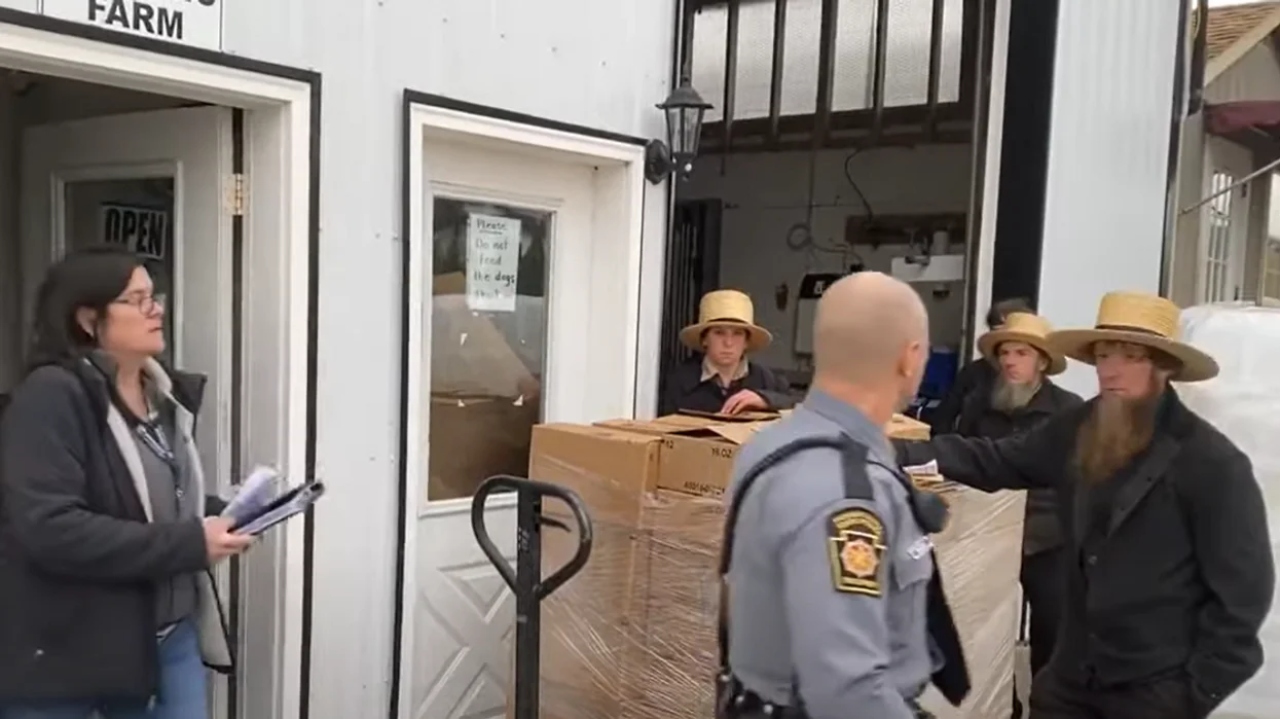Upper Leacock farmer Amos Miller cannot sell raw milk or dairy products made from it to the public under an order issued by a Lancaster County judge Friday afternoon.
Judge Thomas Sponaugle’s order also allows the Pennsylvania Department of Agriculture to inspect any location where Miller packages or distributes raw milk and to test Miller’s dairy products.
The ruling is a win for the agriculture department, which sought to prevent Miller from producing and selling raw milk and products while its lawsuit against him plays out.
But Miller’s California-based attorney, Robert E. Barnes, said the judge actually reduced the scope of the original injunction on Miller’s business.
Sponaugle’s order “only prohibits marketing and sale of raw milk products and protects family and noncommercial use,” Barnes said. The order explicitly says Miller can provide raw milk and products made from it to immediate family members.
The department sued Miller on Jan. 24, saying his business doesn’t have permits to sell raw milk or raw cheese, nor does it have a required retail license. The lawsuit followed a Jan. 4 raid on Miller’s farm in Upper Leacock Township, which in turn was prompted by two illnesses late last year, one in New York and one in Michigan, traced to Miller’s raw eggnog.
Sponaugle’s order comes after a three-plus hour hearing Thursday that centered on the dangers the agriculture department contends Miller’s products pose to the public.
At the hearing, several supporters testified that Miller’s products are necessary to them. Sponaugle’s order acknowledged that.
“Nothing in this order is to distract from the sincerely held beliefs of individuals who believe in the benefits of raw milk products. However, this court cannot ignore this commonwealth’s regulations requiring a permit to sell raw milk; to do otherwise is to improperly usurp the authority and responsibility of the Pennsylvania general assembly,” Sponaugle wrote.
Sponaugle also said Miller can easily resolve his legal troubles. He said he would reconsider his order if Miller applies for a raw milk permit and, in good faith, commits to testing and documentation.
But Barnes said his client would continue to appeal and referred to another part of Sponaugle’s order, in which the judge noted that the General Assembly established the laws governing food safety in the Commonwealth.
“The court accepts the need people have for Amos Miller’s products, but claims the legislature must fix that need,” he said, adding: “While we welcome the (judge’s) call for legislative remedy, we will appeal the order and the members (of Miller’s private buying club plan to sue Agriculture Secretary Russell Redding) for violating their constitutional rights.”
Miller did not respond to a request for comment.
Rally in support
At least one hundred supporters rallied outside the Lancaster County courthouse on Thursday ahead of the hearing presided over by Sponaugle. The crowd represented a broad range of political views, but all in attendance were wary of government involvement in the food system.
Richard Myers, of Eden Township, spoke for many when he stepped to the microphone set up on the sidewalk on the first block of North Duke Street.
“This is government malfeasance and corruption. It’s evil what they are doing to Mr. Miller,” Myers said. “There’s antibiotics and pesticides in the food we buy from a grocery store. They (the government) should be challenging that, too. But no, they go after a poor working man. It’s a two-tiered justice system.”
Miller’s case has drawn national attention from the far-right media, and as of Friday afternoon, an online fundraiser set up to support his operation had raised more than $254,000.
Here is the original court document: https://www.documentcloud.org/documents/24453266-order-3-1-24_0001
Editor’s Note:
The Amish farm in the story above, was raided twice by the government. The way the case has been laid out with this one farmer, could set a precedence for all private food sales across the entire country.
What is the significance of the February 29th Hearing in Lancaster County, Pennsylvania?
The February 29th Hearing in Lancaster County, Pennsylvania could shape the future of food freedom in America, impacting small farmers and consumers across the country.
Why was Amos Miller’s Organic Farm raided by the Pennsylvania Department of Agriculture?
Amos Miller’s Organic Farm was raided based on unverified allegations of foodborne illness, which were tied to Miller’s operation dating back to 2016 and 2023.
How did the Pennsylvania Department of Agriculture handle the search warrant and raid on Amos Miller’s farm?
The Pennsylvania Department of Agriculture obtained a search warrant without proper verification, raided the farm with State Police assistance, detained food products without provision in the warrant, and left Miller without the ability to conduct independent testing.
What legal implications does the case against Amos Miller have for private food sales in the USA?
The case against Amos Miller sets a legal precedent that could signal the end of private food sales in the USA, impacting the ability of small farmers to privately sell their goods to consumers without government mediation.


